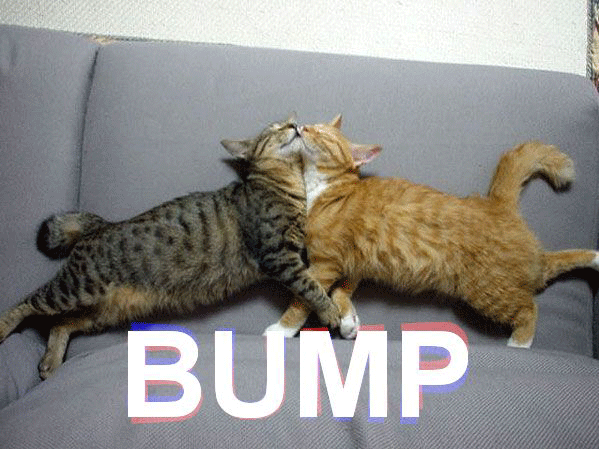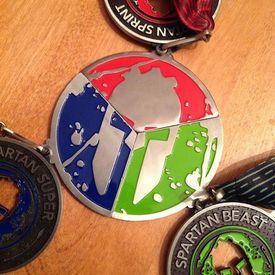Level Obstacles: Lose Weight, Target Fat! (EASY!!)
Replies
-
This is awesome thank you! That website says my TDEE is over 2400 calories and I'm only eating 1200, so maybe this is why my weight is dropping very slowly, because I'm eating too little?
I have been having the same problem. I've needed this information. I have been trying to lose five pounds for 4 months.0 -
Actually, it depends on how you burn your fat. I have been on the Ideal Protein Protocol for 71 days as of today. I started at 202.8 lbs. This morning I weighed in at 164.6 lbs. That's 38.2 lbs. lost in 71 days, or 0.54 lbs. lost EVERY DAY. It's an 850/day calorie diet that relies on you staying in Ketosis in order to burn the rest of the calories you need from your FAT. The Protein is NOT animal based, so it's GREAT for Vegans. And I am hardly doing any muscle activity other than a 30 minute walk every other day, and 30 pushups, 120 crunches, 30 leg-lifts, 30 squats, 30 good-mornings every day. My goal is to be at a ripped 140 lbs. by the end of May! This just proves you don't need a gym membership to do what I am doing! :-)
Calorie deficit is leading to the weight loss. You're not going to be strong by any measure of the word, but to each their own. 850 calories would barely cover my pop tarts and ice cream. Good luck with keeping that up forever.0 -
To the OP - thank you. :flowerforyou: :flowerforyou: :flowerforyou: There is so much mis-information about losing weight - which can come from doctors sometimes. I have friends who eat / net about 600 - 700 a day :noway: I keep nagging them to eat more but they won't listen. So glad I made the discovery that you need to eat enough to lose weight. :smokin:
This should be "stickied" so it stays at the top of the forum! 0
0 -
Actually, it depends on how you burn your fat. I have been on the Ideal Protein Protocol for 71 days as of today. I started at 202.8 lbs. This morning I weighed in at 164.6 lbs. That's 38.2 lbs. lost in 71 days, or 0.54 lbs. lost EVERY DAY. It's an 850/day calorie diet that relies on you staying in Ketosis in order to burn the rest of the calories you need from your FAT. The Protein is NOT animal based, so it's GREAT for Vegans. And I am hardly doing any muscle activity other than a 30 minute walk every other day, and 30 pushups, 120 crunches, 30 leg-lifts, 30 squats, 30 good-mornings every day. My goal is to be at a ripped 140 lbs. by the end of May! This just proves you don't need a gym membership to do what I am doing! :-)
Calorie deficit is leading to the weight loss. You're not going to be strong by any measure of the word, but to each their own. 850 calories would barely cover my pop tarts and ice cream. Good luck with keeping that up forever.
Exactly0 -
To the OP - thank you. :flowerforyou: :flowerforyou: :flowerforyou: There is so much mis-information about losing weight - which can come from doctors sometimes. I have friends who eat / net about 600 - 700 a day :noway: I keep nagging them to eat more but they won't listen. So glad I made the discovery that you need to eat enough to lose weight. :smokin:
This should be "stickied" so it stays at the top of the forum!
Yeah, it really should. There are some posts similar to this that have been stickied...it's a pretty common problem here - well, probably any weight-loss site. We really think less calories will make us lose weight faster. Not so much.
You can't drive across state on 1/4 tank of gas, and you can't function in the world on 600-800 calories. Not for long, anyway, unless you're a Cocker Spaniel, or a five year old human. Unfortunately it works for a while.
Then. It. Doesn't.0 -
Agreed!To the OP - thank you. :flowerforyou: :flowerforyou: :flowerforyou: There is so much mis-information about losing weight - which can come from doctors sometimes. I have friends who eat / net about 600 - 700 a day :noway: I keep nagging them to eat more but they won't listen. So glad I made the discovery that you need to eat enough to lose weight. :smokin:
This should be "stickied" so it stays at the top of the forum! 0
0 -
awesome. thx0
-
Agreed!To the OP - thank you. :flowerforyou: :flowerforyou: :flowerforyou: There is so much mis-information about losing weight - which can come from doctors sometimes. I have friends who eat / net about 600 - 700 a day :noway: I keep nagging them to eat more but they won't listen. So glad I made the discovery that you need to eat enough to lose weight. :smokin:
This should be "stickied" so it stays at the top of the forum!
It has my vote0 -
Agreed!To the OP - thank you. :flowerforyou: :flowerforyou: :flowerforyou: There is so much mis-information about losing weight - which can come from doctors sometimes. I have friends who eat / net about 600 - 700 a day :noway: I keep nagging them to eat more but they won't listen. So glad I made the discovery that you need to eat enough to lose weight. :smokin:
This should be "stickied" so it stays at the top of the forum!
It has my vote
Yup.0 -
bump0
-
Bump!0
-
bump0
-
Am going to try it! Thanks for sharing0
-
well, I'm glad you posted this- I am no where near the proper amount. Now it's to figure out how to fit in the extra. I wasn't meeting my goal before (and it was too low), so this should be interesting.0
-
Am going to try it! Thanks for sharing
GO SKINS!0 -
Bump0
-
I'm glad you're willing to change it up! I'm certain you will feel better and see better results by recalibrating your intake upward.well, I'm glad you posted this- I am no where near the proper amount. Now it's to figure out how to fit in the extra. I wasn't meeting my goal before (and it was too low), so this should be interesting.0 -
This is awesome thank you! That website says my TDEE is over 2400 calories and I'm only eating 1200, so maybe this is why my weight is dropping very slowly, because I'm eating too little?
Absolutely . . . sounds like the most typical problem :-)0 -
Repost:
This post is designed to level the obstacles between you and weight loss. The obstacles are confusing data, unnecessary details, etc. Folks with excess body fat can easily lose weight in a healthy, sustainable way. No fad diets, obscure research, or sales pitches; just practical, proven advice.
Important Background Information
Fat is energy, and calories measure energy. There are 3500 calories in a pound of fat, so if you burn 3500 more calories than you eat, you will lose a pound of fat. That can't be done in a day, so we do it over time.
For instance, if you eat 500 fewer calories than you burn each day, you have a calorie deficit of 3500 at the end of a week (500 calories x 7 days = 3,500 calorie deficit).
How Much Do I Burn in a Day?
Your Total Daily Energy Expenditure (TDEE) is the number of calories you burn in a day - by circulating blood, brushing your teeth, looking at funny cat gifs, working out, etc. If you eat less than you burn, you lose weight.
Calculate your TDEE here: http://www.fitnessfrog.com/calculators/tdee-calculator.html Just enter your height, weight, age, gender and daily activity level. This will give you a good approximation of how much you burn in an average day.
How Much Less Should I Eat?
Like weight gain, weight loss doesn't happen fast. If your deficit is too small, you will lose weight slowly. But! Surprisingly, if your deficit is too large, you also lose weight slowly.
This may seem illogical, but if you under-eat by much for too long, you'll be more prone to binge-eating and more likely to experience health issues related to malnutrition. Believe it or not, under-eating is the most common problem on MFP.[1]
So what is the right deficit? A good calorie deficit is around 20% less than your TDEE depending on how much fat you have to lose. If you've got over 75 pounds to lose, go as high as 30% deficit. If you've got less than 15lbs to lose, go down around 10%.
Review:
1. Go find your TDEE here: http://www.fitnessfrog.com/calculators/tdee-calculator.html
2. Eat about 20% less than that number each day. Bigger deficit if you have more pounds to lose. Lower deficit if you have less pounds to lose.
3. Log everything you eat accurately - measure it with a scale (they're cheap!). Research has shown that most people eat more than they think.
Example:
You're lightly active, 26 year old, 190lb, 5'6" female. Your TDEE from the calculator is 2,300 calories per day.
According to the Leveling Obstacles approach, you would eat 20% less than 2300 (2300 x .80), or 1,830 calories per day. Stay relatively consistent in your logging and activity level, and you will lose approximately one pound a week.
Final Thoughts:
+ MyFitnessPal is great for tracking calories, but it is not great for setting targets. Regardless of how much or little you have to lose, it will let you say "lose 2lbs/week!" and drop you down to 1200 cals. That value is most likely not right for you.
+ Patience, you must have it. Give this time. Like a month at least.
+ Your weight can change several pounds from one day to the next. Two pounds in a day is water weight. Don’t weigh in daily, you’ll drive yourself nuts.
+ Food isn't evil. Clowns and authors of young adult fiction are evil. But not food! Eat healthy and indulge in treats as long as it’s within a few % of your calorie goal.
+ Try to hit your calorie goal. Going way under every day will not help you. 100 cals over or under on a given day is not going to hurt you. Take it easy, don’t sweat it.
+ Right now, don't focus on details like macronutrients (carbs, fat, and protein) or how much sodium and sugar is in your diet. First step is accurately measuring and tracking your food and hitting your calorie targets. When you are comfortable, there is an awesome thread about how to set optimal calorie and macro targets [2]
+ Cardiovascular exercise (running, stairs, aerobics, cat juggling) can help burn fat. Resistance training (lifting weights) will improve your physique and increase your body's resting metabolic rate (calorie burn).
I didn't create this information. This information existed before I learned it. I learned it from others here. Literally and figuratively this was written by other people. I'm just posting it. I didn't do this by myself, it is the compilation of direct collaboration and observation of ihad, davpul, angelamberl, loraf83, winnervictorious, codergal, zoelifts, serpwidgets, allonsytothetardis, cmriverside, sjohnny, jofjltncb6, lacurandera1 and others. It is also the product of indirect collaboration - i.e. learning by observation - from sidesteel, acg67, among hundreds of others on the site as well as groups like Eat Train Progress[3] and threads like IPOARM[4] which can take you to the next level when you're ready.
FOOTNOTES
[1] A few examples of under-eating being problematic can be seen at this thread: http://www.myfitnesspal.com/topics/show/919346-still-think-your-1200-or-less-diet-is-a-good-idea
[2] This is a great thread about how to configure your macros. Once you’ve mastered measuring, tracking, and have a reasonable top-level goal, go here. http://www.myfitnesspal.com/topics/show/819055-setting-your-calorie-and-macro-targets
[3] http://www.myfitnesspal.com/groups/home/10118-eat-train-progress
[4] http://www.myfitnesspal.com/topics/show/937712-in-place-of-a-road-map-ver-3-00 -
In for more awesomeness.0
-
A whole new thread of awesomeness.
(I swear I didn't see magerum's post)0 -
Marking for ease of reference... Love this!0
-
IN0
-
In! Thanks for reposting the original summary!0
-
In for more awesomeness.
Indeed0 -
Bump for later0
-
 0
0 -
But...but...but... you don't explain how a pound of muscle weighs more than a pound of fat! Won't people just be all confused?
/troll0 -
bump to read when I am home
 0
0 -
bump0
This discussion has been closed.
Categories
- All Categories
- 1.4M Health, Wellness and Goals
- 398.2K Introduce Yourself
- 44.7K Getting Started
- 261K Health and Weight Loss
- 176.4K Food and Nutrition
- 47.7K Recipes
- 233K Fitness and Exercise
- 462 Sleep, Mindfulness and Overall Wellness
- 6.5K Goal: Maintaining Weight
- 8.7K Goal: Gaining Weight and Body Building
- 153.5K Motivation and Support
- 8.4K Challenges
- 1.4K Debate Club
- 96.5K Chit-Chat
- 2.6K Fun and Games
- 4.8K MyFitnessPal Information
- 12 News and Announcements
- 21 MyFitnessPal Academy
- 1.6K Feature Suggestions and Ideas
- 3.2K MyFitnessPal Tech Support Questions


















